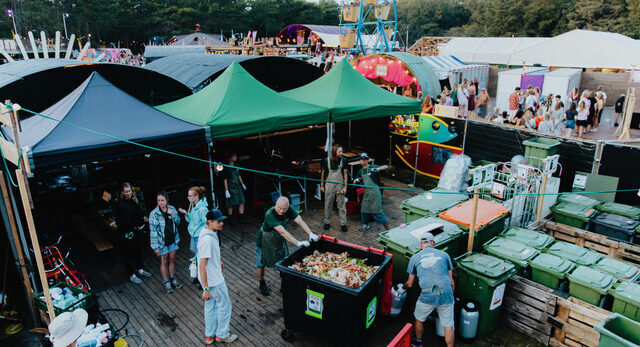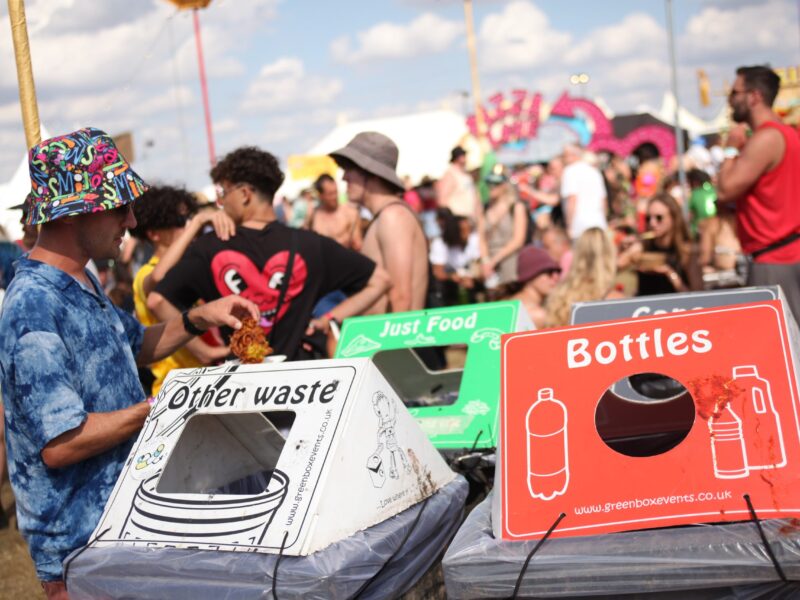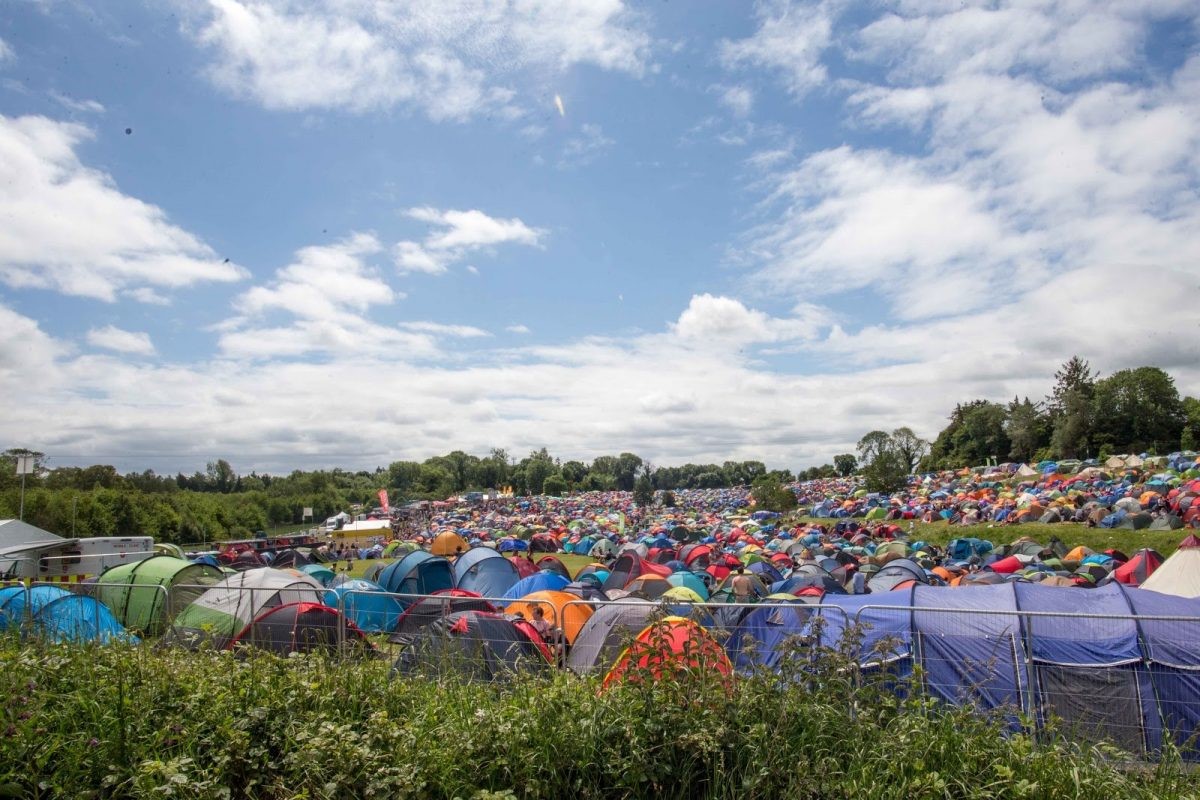
Five solutions to campsite waste
For anyone involved in the post-production process of multiple-day festivals that involve a campsite, campsite waste has been an uncomfortable and troublesome reality. Managing resource flows at festivals is no easy task – and it gets even worse if around 20% of tents, mattresses, sleeping bags and supplies are left behind. In this article, we discuss five potential solutions.
What’s the issue?
The why’s and how’s of campsite waste have been problematized and discussed extensively (see here and here), so let’s keep it short. One thing to keep in mind: for many, the act of creating waste has been embedded into the culture of festivals – for some, it’s become part of the experience. Do not underestimate the challenge of changing behavior and attitudes that have been around for decades. Furthermore, studies show that even a positive attitude towards ‘leaving nothing behind’ or ‘clean camping’ may not necessarily translate into such behaviour (i.e. attitude-behavior gap).
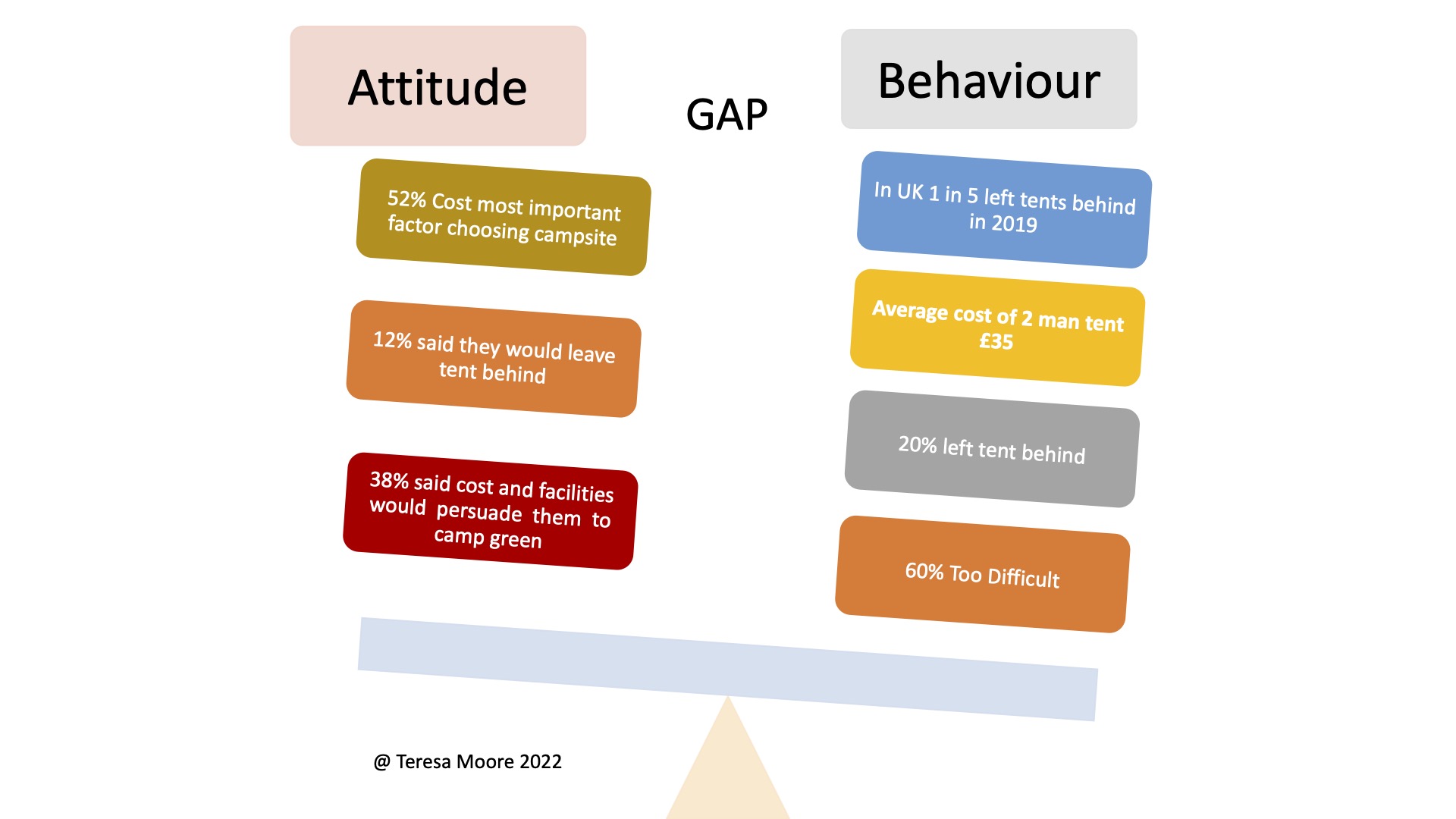
Who should be responsible for preventing camping waste?
A fair answer would be: it’s a shared responsibility between every stakeholder – camping-gear retailers, festival organisation, campsite visitors, waste processors and (local) governments. However, studies show that the audience may believe it’s up to the organizer. And thus organizers have an increased responsibility for ‘education’: make sure that your audience understands that they, too, have a responsibility to reduce what’s left behind. Lead them by example: you cannot expect your audience to keep a green mindset if you provide disposables and enable a culture of ‘throwing things away is just the way we do things here’. Consider this: put on a festival with a bit of purpose behind it as a platform to create change.
What if the solution is…
Recycling
Campsite waste is often so mixed that normal recycling companies would reject it. It’s too much work, money and time to separate and recycle it. Furthermore, searching for answers in the ‘recycling’ solution goes to show that campsite waste is a symptom of a larger society design flaw: we’ve come to a point where it’s okay to use things for a short amount of time. We need to stick to the waste hierarchy: reduce first, reuse second, and recycle as a last option.
Green or Eco Camping
Here’s some tips to implement this successfully: dilute sustainability messages with concrete information. To the average festival goer ‘being green’ or ‘keeping it clean’ is not important or interesting, whereas amenities, atmosphere, and cost are convincing. So don’t push the ‘green’ – push comfort, atmosphere, and whatever else people will get out of this experience.
Renting tents
Some visitors usually might not go camping in their free time, and therefore have no use for a tent after the event. The option of renting a tent may prevent these visitors from buying a cheap tent and leaving it behind. Watch out for costs: this option should be lower than ‘glamping’. Lowlands will increase the amount of rentable tipis due to a high demand at last year’s event, which goes to show that this solution has high potential.
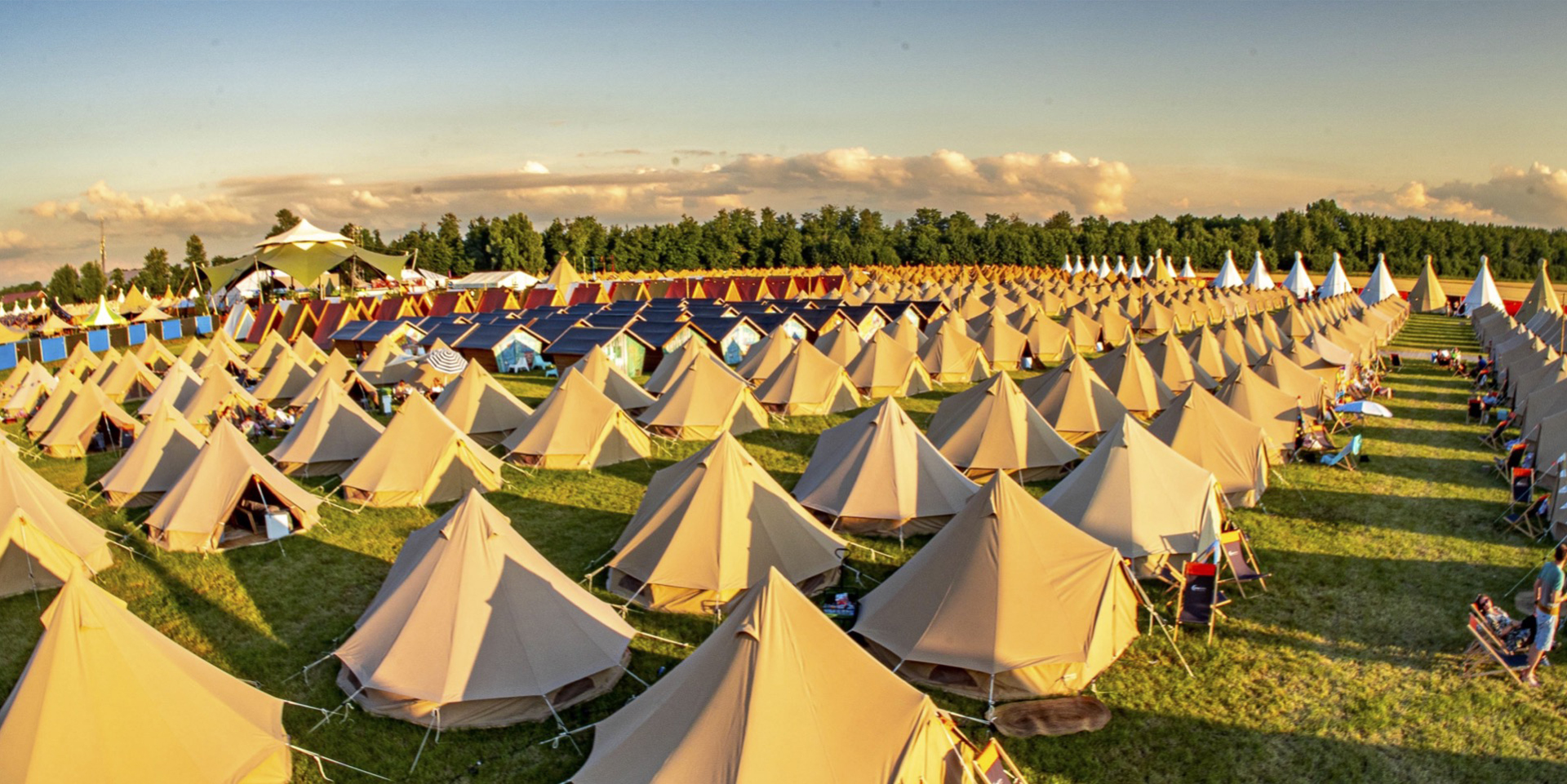
Rules and regulations
Festivals with multi-day camping are extremely complex, it is already difficult to 1) comply as a festival organization to all existing regulations as dictated by governments and 2) to enforce these rules towards each and every one in the audience. The latter would be possible (e.g. camping area ambassadors reminding everyone to keep it clean) but hugely costly, and the question is whether that money would not be better spent influencing behavior in a positive rather than constrictive way. However, festival organization do have the potential to take the lead by setting up ground-rules (e.g. forbidden to bring couches) and enforcing them enough so that future visitors will adhere to them.
Retailers doing their part
No surprises here: retailers have had an enormous role in the short-term thinking towards products. To be more specific, they have marketed the concept of a festivaltent to a point where it has become almost synonymous to a single-use product. A lot has to happen on this front to get rid of the current mindset – all parties involved must work together on this, retailers included.
“You are the person you have been waiting for to reduce waste”
The insights in this article stem from the program ‘Campsite waste; a single use plastic problem in need for a radical mindshift’ during ADE Green 2022. Frank Kimenai discussed this with Megan Best (Native Events), Teresa Moore (Green Festival Awards) and Eric van Eerdenburg (Lowlands).


